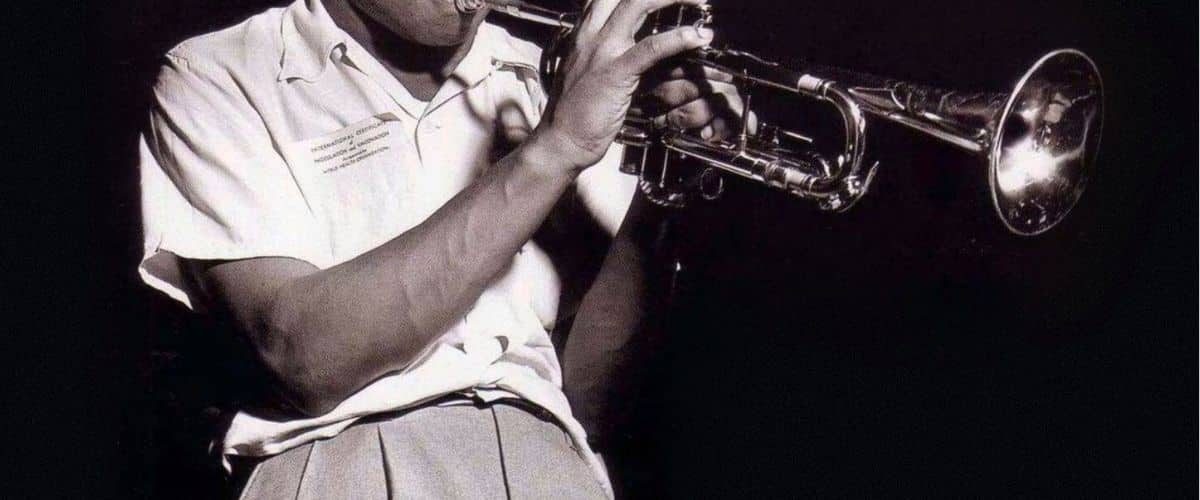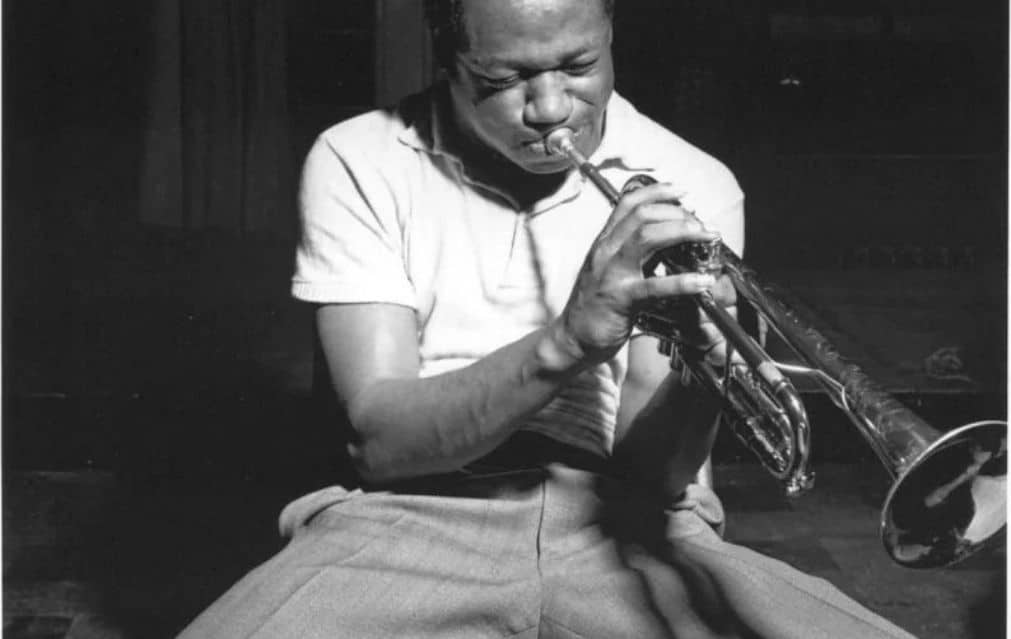
Discover the tragic tale of Clifford Brown, the trumpet prodigy who left us too soon.
This young genius was on the brink of revolutionizing jazz when disaster struck! With a sound so smooth and a technique so flawless, Clifford was destined for greatness until fate intervened.
Prepare to be moved by his incredible story and the legacy he left behind in just a few short years.
A Shining Star Gone Too Soon

Clifford Brown, a gifted trumpeter with immense potential, tragically lost his life in a car accident at the young age of 25, abruptly ending what could have been a long and illustrious career in jazz music.
Born on October 30, 1930, in Wilmington, Delaware, Brown discovered his passion for the trumpet early on. He started playing the instrument in grade school and became a member of a local jazz ensemble by the late 1940s.
However, his journey to success was not without its challenges. In 1950, he suffered severe injuries from a car crash, which could have derailed his musical aspirations.
Despite this setback, Brown found encouragement and support from the legendary Dizzy Gillespie, who urged him to continue pursuing his passion for music during his recovery period. This unwavering determination and love for his craft would become the hallmark of Brown’s short but impactful career, leaving an indelible mark on the jazz world and inspiring generations of musicians to come.
A Bebop Prodigy's Legacy in Four Short Years

Clifford Brown’s musical style was heavily influenced by the bebop movement, which was pioneered by trumpeters such as Dizzy Gillespie and Fats Navarro, whom he greatly admired and emulated.
However, Brown also drew inspiration from older generation players like Louis Armstrong and Roy Eldridge, incorporating elements of their styles into his unique approach to jazz trumpet playing.
Despite his tragically short life, Brown managed to make a significant impact on the jazz world during his brief recording career, which lasted only four years. During this time, he co-wrote several jazz standards that would go on to become beloved classics, cementing his legacy as a talented composer and skilled performer.
Additionally, Brown had the opportunity to collaborate with some of the most prominent artists of his time, including the legendary vocalist Sarah Vaughan, further showcasing his versatility and musical prowess.
Clifford Brown's Musical Essence
Clifford Brown’s musical style was characterized by his clean and soft trumpet tone, which set him apart from many of his contemporaries, who often favored more flamboyant and aggressive playing. Brown’s approach to jazz was focused on maintaining a strong sense of rhythm and melody, eschewing flashy displays of technical prowess in favor of a more understated and musically coherent style.
One of his most famous compositions, “Joy Spring,” which he named after his wife, has become a beloved jazz standard and a testament to his skill as a composer. The piece showcases Brown’s ability to craft memorable melodies and harmonies that have stood the test of time.
Brown’s musical partnership with drummer Max Roach was another significant aspect of his career, with their Clifford Brown-Max Roach

Quintet producing the highly acclaimed album Study in Brown in 1955, which featured popular tracks like “Sandu” that highlighted the group’s tight interplay and innovative approach to jazz.
A Shining Example of Artistry, Integrity, and Enduring Influence in Jazz

In addition to his incredible musical talents, Clifford Brown was also known for his exemplary personal qualities, which earned him the admiration and respect of his peers in the jazz community.
He was widely regarded as a kind, disciplined, and dedicated individual who maintained a drug-free lifestyle, setting a positive example for other musicians in an era when substance abuse was rampant in the jazz scene.
Brown’s unwavering commitment to his craft and his ability to resist the temptations of drugs and alcohol served as an inspiration to many of his contemporaries, including the renowned saxophonist Sonny Rollins, who credited Brown’s influence in helping him overcome his struggles with addiction.
Brown’s legacy as both a musician and a role model has endured long after his tragic death, with jazz legends like Louis Armstrong and Roy Eldridge expressing their deep respect for his contributions to the art form.
The iconic producer and composer Quincy Jones even included Brown among the greatest jazz players of all time, predicting that his music would continue to be celebrated and remembered for generations to come.
Clifford Brown: An Eternal Symphony of Genius, Inspiration, and Resilience

Clifford Brown’s life and career, though tragically cut short, serve as a powerful testament to the enduring impact of a true musical genius.
His exceptional talents, innovative style, and unwavering dedication to his craft left an indelible mark on the world of jazz, influencing countless musicians and shaping the course of the genre for generations to come.
Moreover, Brown’s exemplary personal qualities and his ability to overcome adversity continue to inspire and resonate with people from all walks of life, making him a true icon whose legacy extends far beyond the realm of music.
As we reflect on his extraordinary achievements and the profound loss of his untimely passing, we are reminded of the immeasurable value of pursuing one’s passions with integrity, resilience, and an unwavering commitment to excellence.
ABOUT:
Robert Emery created Ted’s List during the lockdown of Covid-19. Aside from entertaining audiences worldwide, he tries to inspire the young musicians of tomorrow. Ted’s List can help enormously with this task, as all the writers are world-class, professional musicians. Ted’s List covers all instruments, from Electric Guitar to Violin and Clarinet. Each instrument has a set of dedicated help articles, giving instructional advice on how to play the instrument, and how to improve. There are also informative reviews based on specific instruments, to help the musician choose the best instrument for them.
MEDIA CONTACT INFORMATION:
All press enquiries go to:
Paul Smith – Head of Press/PR
info (at) teds-list.com

